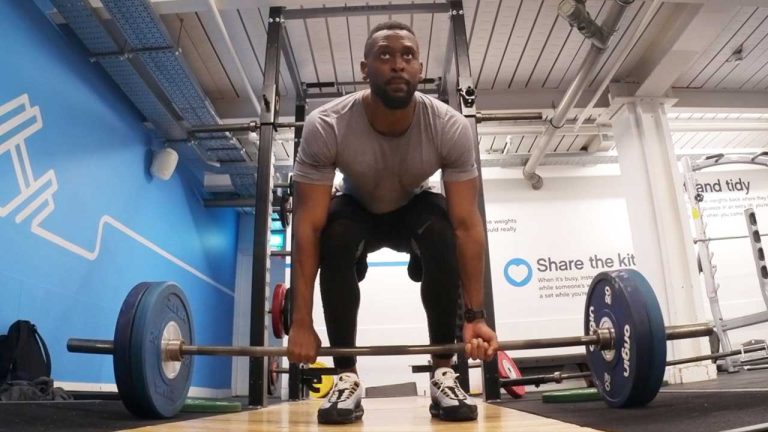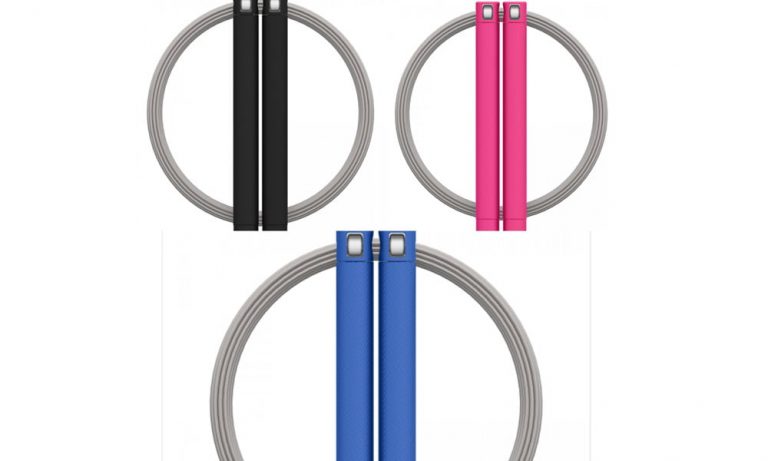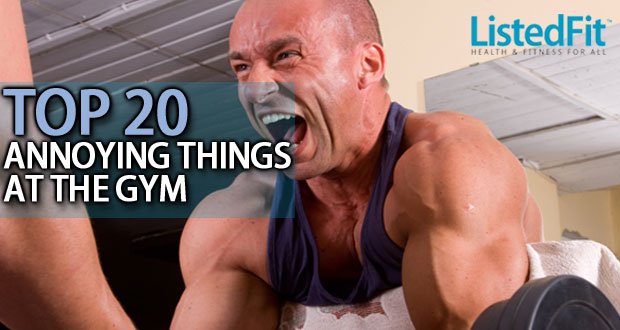Is Oatmeal Good for Bulking? A Quick Guide for Fitness Enthusiasts
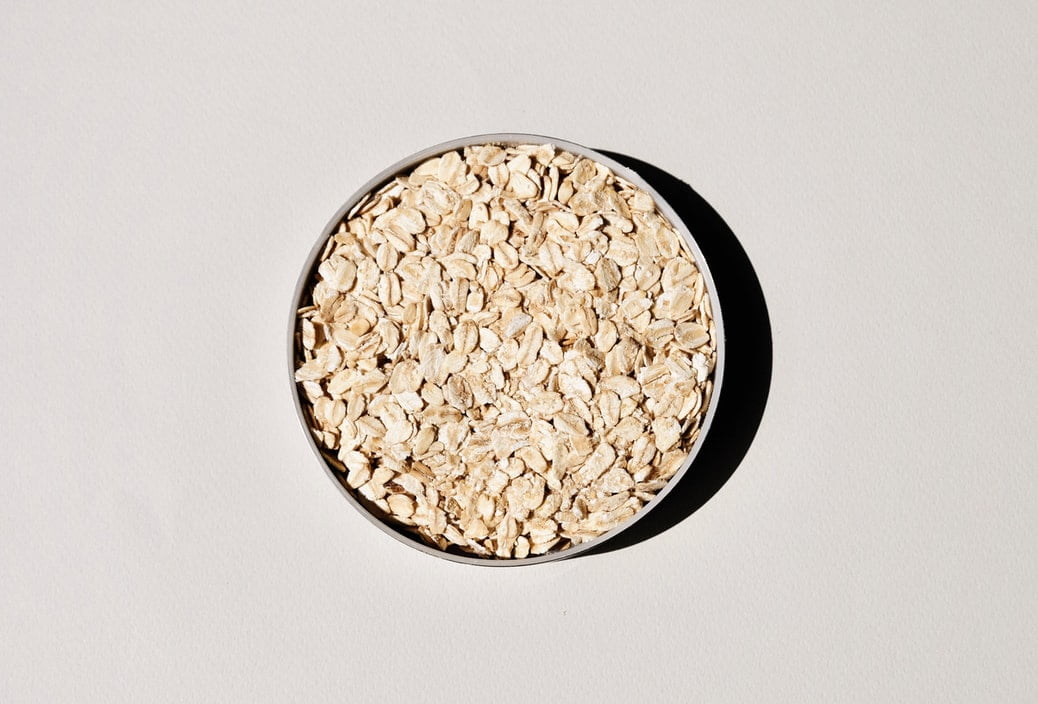
ListedFit is reader-supported. When you buy through links on our site, we may earn a small commission.
Are you trying to bulk up and gain muscle mass? If so, you may be wondering what foods you should be eating to support your goals.
One food that often comes up in discussions of bulking diets is oatmeal. But is oatmeal good for bulking?
In this article, we’ll explore the nutritional benefits of oatmeal and whether it can help you achieve your bulking goals.
So if you’re curious about the role oatmeal could play in your muscle-building diet, read on to find out: is oatmeal good for bulking?
Quick Summary
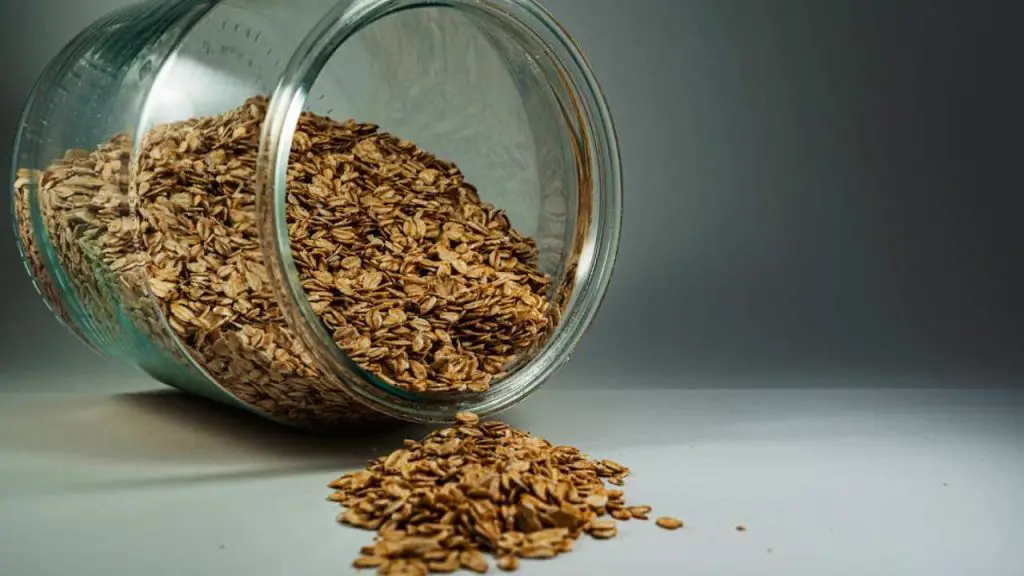
Oatmeal is a complex carbohydrate that is relatively high in protein, with about 11 grams in 1 cup.
This makes it an effective protein source, while also being a high-carb source.
Oatmeal is low in fat, making it perfect for bodybuilders who want to maximise energy and muscle building while keeping their fat intake in check.
Key Takeaways
- Oatmeal is an excellent choice for bulking due to its high protein and complex carbohydrate content.
- Consuming oatmeal can provide sustained energy, which is ideal for fueling your workouts.
- Oatmeal is low in fat, making it perfect for muscle building while controlling fat intake.
Table of Contents
Oatmeal and Bulking
Calorie Surplus
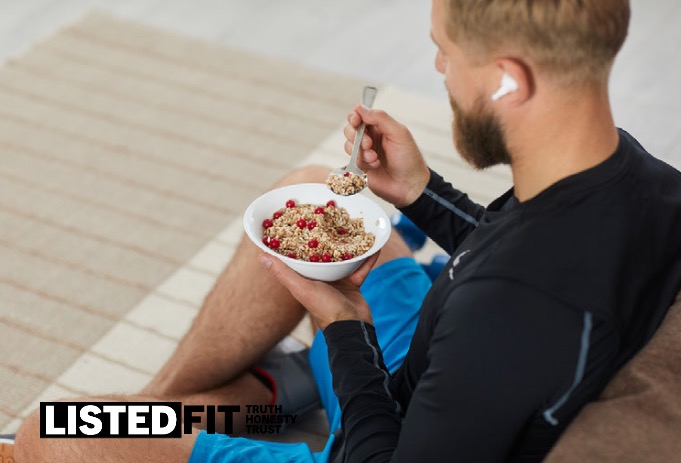
When you’re working towards bulking up, it is vital to consume a calorie surplus to support your muscle growth.
Oatmeal is a fantastic option for adding those much-needed calories to your diet. It is both a carbohydrate and relatively high in protein, which helps repair and build muscle.
A 40g serving of oatmeal usually contains approximately 37g-40g of carbohydrates, 3g-5g of dietary fibre, and 13g-15g of protein.
Incorporating a high-calorie oatmeal recipe into your breakfast is a simple and effective method for increasing your overall caloric intake. For instance, you could try a recipe that provides over 920 calories, which will undoubtedly aid you in reaching your weight gain goals2.
Is Oatmeal Good for Building Muscle?
Yes, oatmeal is beneficial for building muscle, thanks to its impressive macronutrient profile. Its protein content, as mentioned earlier, makes it an excellent source for your muscle repair and growth process after a workout.

Oatmeal’s carbohydrates are necessary for providing energy during workouts and refuelling your muscles afterwards.
Not only does oatmeal help you build muscle but it also offers various health benefits. Whole oats are rich in antioxidants, can improve blood sugar control, assist with weight loss, and lower cholesterol levels.
Keep in mind, though, that it is best to opt for old-fashioned or rolled oats, as flavoured instant oatmeal may contain added sugars and preservatives.
Here’s a recap of oatmeal’s bulking benefits:
- High in protein to support muscle repair and growth
- Provides energy for workouts
- Easy to integrate into your diet through various recipes
- Offers numerous health benefits
Remember to combine a steady intake of oatmeal with a consistent workout routine to optimise your bulking results.
Together, these elements will create the ideal conditions for muscle growth and overall improved health.
Nutritional Benefits of Oatmeal
Oatmeal is an excellent choice for bulking due to its rich nutritional profile.
In this section, we’ll explore the key nutrients that make oatmeal a perfect addition to your bulking diet.
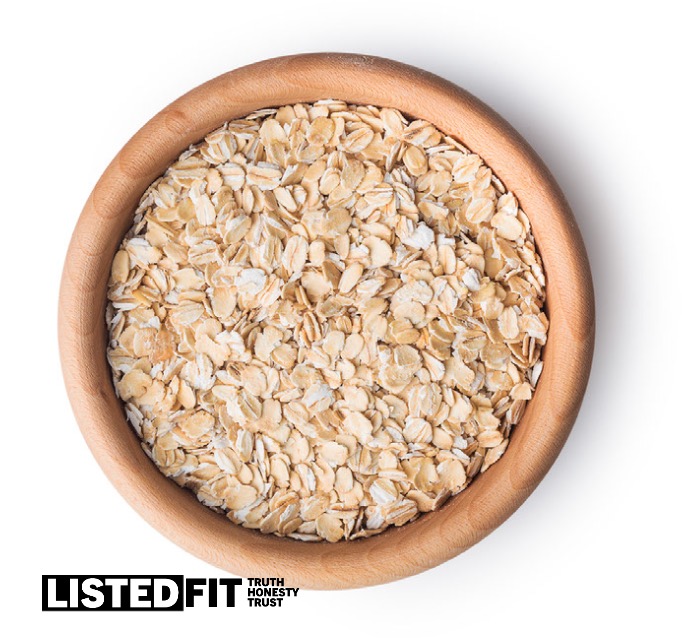
Carbohydrates and Energy
Oatmeal is a fantastic source of complex carbohydrates which provide long-lasting energy for your workouts. One cup of cooked oats contains approximately 28g of carbohydrates, making them an ideal fuel source for your body, especially during intense training sessions.
These complex carbs break down slowly in your system, ensuring a steady release of energy, preventing sudden energy crashes and helping you stay energised for longer periods.
Fibre and Digestive Health
A high fibre content is essential for maintaining good digestive health, and oatmeal is rich in this essential nutrient. One cup of cooked oats provides approximately 4g of fibre, aiding digestion and contributing to healthy bowel movements. Regular consumption of oatmeal can:
- Support regular bowel movements
- Improve nutrient absorption
- Promote healthy gut bacteria
Incorporating oatmeal into your bulking diet will not only improve your digestive health, but also keep you feeling full, preventing overeating and aiding in controlled weight gain.
Vitamins and Minerals
Oatmeal is packed with essential micronutrients that support various bodily functions and contribute to your overall health. Some of the key vitamins and minerals found in oatmeal include:
- Iron: Vital for oxygen transportation in the blood and supports proper muscle function.
- Magnesium: Supports bone health, muscle function, and nerve transmission.
- Zinc: Needed for immune function, protein synthesis, and wound healing.
- Manganese: Supports bone formation and assists in metabolism of carbohydrates and fats.
- Calcium: Essential for strong bones and teeth, muscle function, and nerve transmission.
Additionally, oats contain small amounts of B vitamins, antioxidants, and healthy polyunsaturated fats that help lower inflammation and support cell function.
By incorporating oatmeal into your clean bulking diet, you’ll provide your body with these essential nutrients that aid in overall health, muscle growth, and performance.
Pre- and Post-Workout Meals
When it comes to fuelling your body for a workout, picking the right pre-and post-workout meals is absolutely essential.
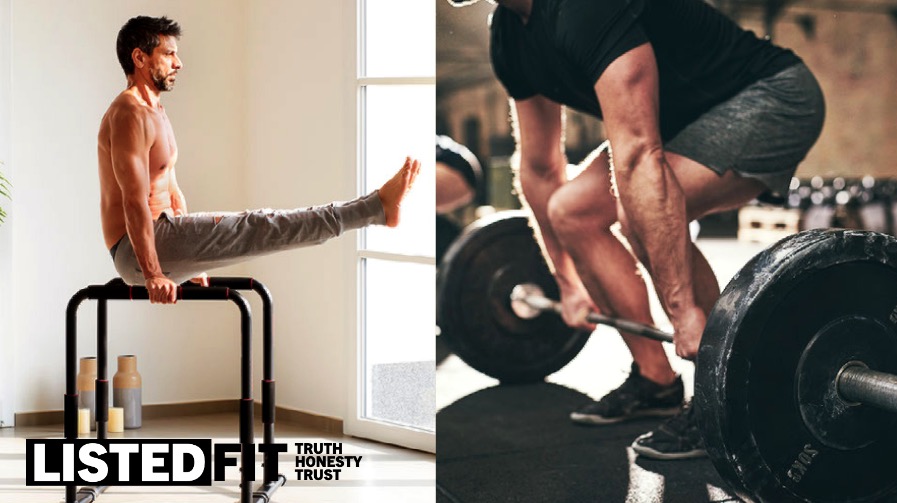
Oatmeal can be a fantastic choice for both of these meals, providing you with sustained energy and essential nutrients.
Before your workout, a pre-workout meal that includes oatmeal can provide you with long-lasting energy, thanks to its complex carbohydrates.
This energy helps boost your performance during your training session. To make your pre-workout oatmeal even more effective, consider adding a source of protein, such as low-fat milk, which contains whey protein.
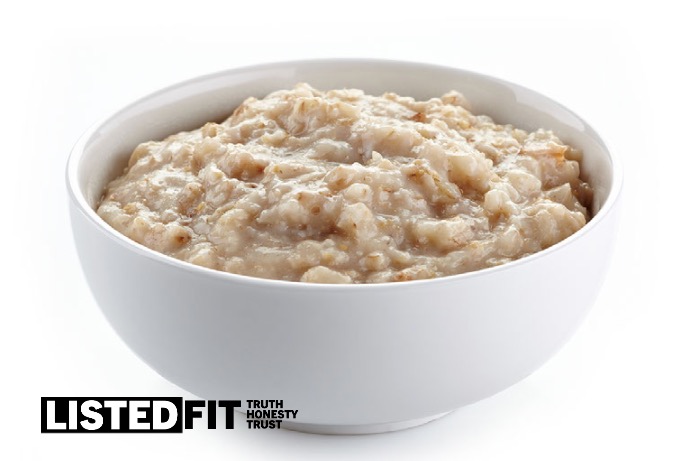
A combination of oatmeal and low-fat milk not only provides you with energy-boosting carbohydrates but also a substantial amount of protein that is essential for muscle repair and growth.
A simple, yet effective pre-workout oatmeal recipe idea:
- 1 cup of oats
- 1 cup of low-fat milk (or a plant-based alternative)
- 1/2 cup sliced fruit (e.g., banana or berries)
- 1 tbsp of almond butter or peanut butter
For a post-workout meal, it’s important to replenish the energy you’ve expended and provide your body with the nutrients it needs to recover and build muscle.
Here, oatmeal shines again, as it has an impressive macronutrient profile that includes a good balance of carbohydrates and protein. A 40g serving of oatmeal contains approximately 37g-40g of carbohydrates and 13g-15g of protein, making it a great choice to help you refuel after your workout.
To further enhance your post-workout oatmeal, consider adding magnesium-rich foods such as spinach, chia seeds, or almonds. Magnesium is an essential mineral that plays a crucial role in muscle function and recovery, making it a valuable nutrient to include in your post-training meal.
A nourishing post-workout oatmeal recipe idea:
- 1 cup of oats
- 1 cup of water or low-fat milk (or a plant-based alternative)
- 1 banana, sliced
- 1 tbsp of chia seeds
- 1/4 cup chopped almonds or walnuts
So, when you’re looking to optimise your pre-and post-workout meals, oatmeal is a versatile and nutrient-dense option that can support your bulking goals while providing you with the energy and nutrients needed for effective workouts.
Remember to enjoy your oats, and be creative with your toppings to keep things interesting and tasty!
Are Overnight Oats Better Than Oatmeal?
When you’re bulking, you want to make the most out of your meals and choose options that promote muscle growth and health.
That’s where overnight oats and oatmeal come into play. But is one better than the other? Let’s explore this question to help you make an informed decision for your bulking journey.
Overnight oats and oatmeal both start with the same primary ingredient: oats.
The difference lies in the preparation. While oatmeal is cooked, usually with hot water or milk, overnight oats involve soaking the oats in a liquid of your choice, typically milk or yoghurt, for several hours or overnight.
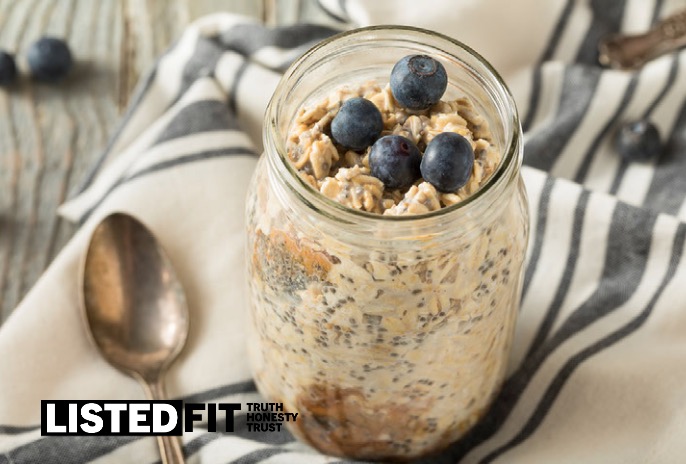
The benefits of overnight oats might appeal to you. The fermentation process that occurs as the oats soak can improve your digestion and increase nutrient availability, which is crucial for muscle growth and recovery.
Not only that, but overnight oats retain more nutrients since they’re not exposed to heat during cooking.
According to University Health News, overnight oats contain 11 grams of protein and 8 grams of fibre, while cooked oats have 6 grams of protein and 4 grams of fibre. This can contribute to a higher nutrient intake for your bulking needs.
On the other hand, oatmeal might be your preference if you enjoy a warm, freshly cooked meal in the mornings.
Cooked oats are easier to digest for some people, and the process of cooking can slightly alter the texture and taste, making them more palatable to certain individuals.
So, are overnight oats better than oatmeal for bulking? It depends on your preferences and needs.
Both options provide nutritional benefits, with overnight oats offering slightly higher protein and fibre content.
The most important factor for your bulking journey, however, is finding a breakfast choice that supports your training goals, is enjoyable for you to eat consistently and of course, has good calories.
If that choice happens to be overnight oats or oatmeal, you’re already on the right track!
Is It Better to Have Oats Before or After Working Out?
It’s a common question among gym-goers and fitness enthusiasts: should you eat oats before or after your workout?

Oats are a popular and nutritious carbohydrate option for bulking, but when is the best time to consume them for optimal results? In this section, we’ll explore the benefits of consuming oats at different times in relation to your workout regimen.
Having oats before your workout can provide you with sustained energy, thanks to their complex carbohydrate content.
When you consume oats pre-workout, your body slowly breaks down the carbohydrates into glucose, which is then used as fuel for your muscles during exercise. This can aid in preventing a sudden drop in blood sugar levels and help maintain your stamina throughout your workout.
In addition to that, oats are a source of protein which can give a slight boost to your protein intake, although it’s essential to pair it with other protein sources to meet your daily protein requirements.
Ideally, aim to consume a meal containing oats and some lean protein three to four hours before your workout to give your body ample time for digestion.
On the other hand, consuming oats post-workout can also be beneficial for several reasons.
Firstly, they can replenish your glycogen stores, which have been depleted during intense exercise. By doing so, you’ll help your body recover faster and support muscle growth.
Secondly, including a source of protein alongside your post-workout oats will contribute to muscle repair and building, which is essential for bulking.
So, what’s the verdict on whether to eat oats before or after working out? The answer is that both options offer benefits, and ultimately, you should choose the one that works best for your individual needs and preferences.
Experiment with both eating oats pre and post-workout to see which one yields better results for your fitness goals.
Is Oatmeal Good for Bulking?– Conclusion
While incorporating oatmeal into your bulking diet, you can expect to enjoy numerous benefits for your muscle-building journey.
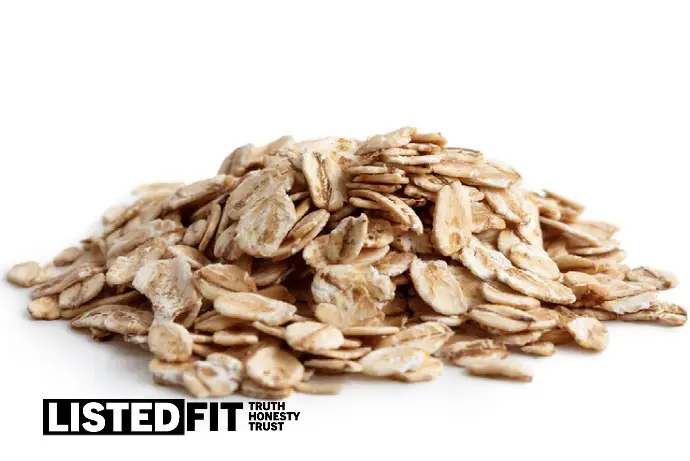
As a source of complex carbs, oatmeal provides you with long-lasting energy during your workouts, which is essential for bodybuilding.
Moreover, oatmeal is a decent source of protein, making it an ideal choice for those looking to build muscle without relying solely on protein powders, shakes, or eggs.
Your body will also appreciate the antioxidant properties present in oatmeal, as they help combat inflammation and promote muscle recovery.
This is crucial for further gains as it allows your muscles to heal and grow stronger. Furthermore, engaging with a nutritionist to personalise your diet to include oatmeal can be an informed decision for weight gain and overall health improvement.
Integrating oatmeal into your daily meal plan is a practical method of adding variety to your protein sources. Whether you prefer it as a standalone meal or combined in a protein shake, the versatility of oatmeal provides numerous options for consumption. Remember to take advantage of the fibre, healthy fats, vitamins, and minerals oatmeal offers, further supporting your bodybuilding efforts.
To sum up, oatmeal is a welcomed addition to any bulking diet. Its protein and complex carb content, combined with its antioxidant properties and additional nutrients, contribute to a well-rounded and effective meal plan for those looking to build muscle and improve overall health.
So go ahead and enjoy your bowl of oatmeal — your muscles and body will thank you!
Frequently Asked Questions
Best oats for muscle growth
When choosing oats for muscle growth, it’s ideal to pick whole, minimally processed oats such as steel-cut or old-fashioned rolled oats.
These types of oats retain more nutrients and fibre, which are essential for overall health and muscle building.
Additionally, they have a lower glycemic index, providing a steadier source of energy during your workouts and throughout the day.
Oatmeal recipes for bulking
For effective bulking, consider adding calorie-dense ingredients to your oatmeal. Mix in nut butters, such as peanut or almond butter, to increase your protein intake.
Try adding chopped nuts or seeds for healthy fats, and dried fruits or honey for carbs. Blending in protein powder is another option to boost the protein content and flavour of your oatmeal.
Get creative and find combinations that work best for you and don’t worry if they don’t look pretty either, sometimes the best-tasting meals are the ugliest ones!
Oats’ role in cutting and bulking
Oats play a role in both cutting and bulking phases due to their versatility. They provide a source of complex carbohydrates, which are necessary for fueling your workouts and everyday activities.
The high fibre content in oats can also help improve digestion and keep you feeling full, aiding in weight management during your cutting phase.
Adjust your portion sizes and toppings to fit the requirements of your specific phase, whether cutting or bulking.
Bodybuilders’ views on oatmeal
Many bodybuilders incorporate oatmeal in their diet, as it offers a reliable and nutritious source of carbohydrates and fibre.
Oatmeal is also easy to prepare, making it convenient to customise and consume as a pre- or post-workout meal.
The low-fat content and slow-releasing energy from oats make them a popular choice among those wanting to gain muscle while maintaining a lean physique.
Effect of post-workout oats
Consuming oatmeal post-workout can help refuel your body and support muscle growth. The carbohydrates in oats replenish your glycogen stores, while the fibre helps with nutrient absorption.
Including a source of protein, like Greek yoghurt or protein powder, can enhance muscle repair and growth after an intense training session.
It’s generally recommended to eat a balanced meal within 1-2 hours after your workout for optimal recovery.
Oatmeal’s impact on muscle building
Oatmeal provides a steady supply of energy, which is essential for maximising your workout performance and promoting muscle growth.
The complex carbohydrates in oats fuel your muscles and prevent premature fatigue. Additionally, oatmeal’s fibre content helps improve digestion, enabling your body to efficiently absorb essential nutrients for muscle building.
While oatmeal alone doesn’t directly build muscle, it’s a valuable component of a well-rounded, muscle-building diet.
Author
- Danny Loeb is a qualified Personal Trainer, Fitness Model and Writer. He enjoys blogging about health and fitness, messing around with Photoshop, and sharing his experiences with everyone.
Latest entries
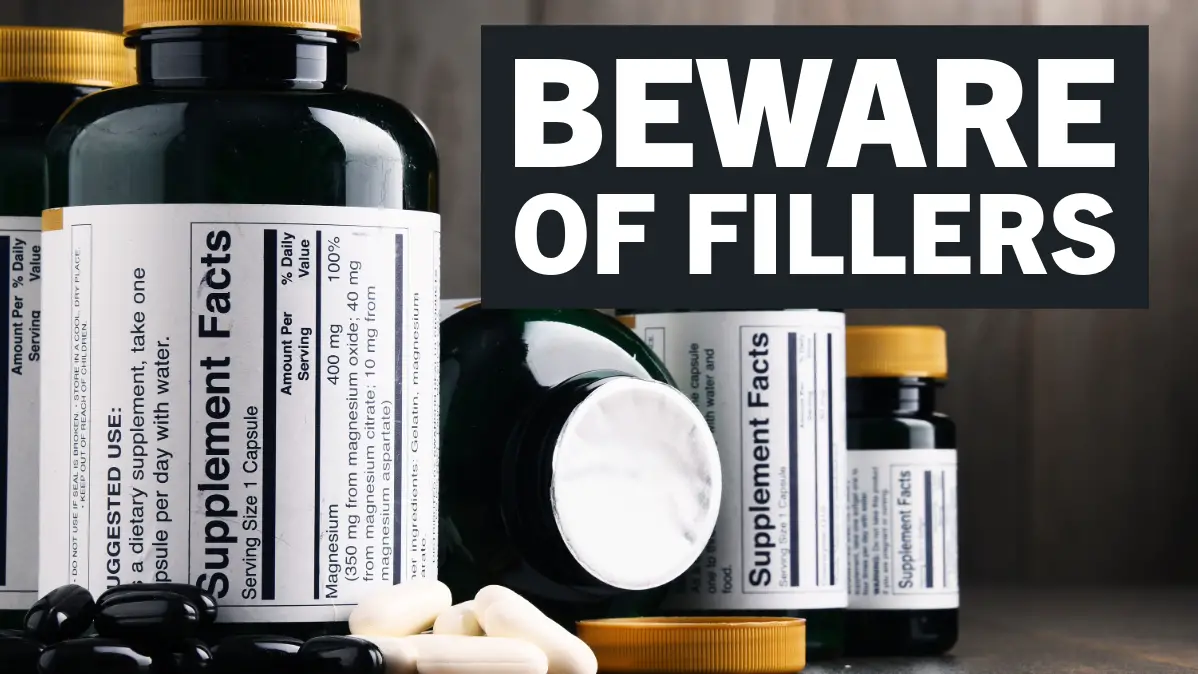 NutritionFebruary 6, 2024What Are Fillers in Supplements? – Unveiling Inactive Ingredients
NutritionFebruary 6, 2024What Are Fillers in Supplements? – Unveiling Inactive Ingredients FitnessAugust 23, 2023Best Post-Workout Foods: Great Ideas for Recovery and Results
FitnessAugust 23, 2023Best Post-Workout Foods: Great Ideas for Recovery and Results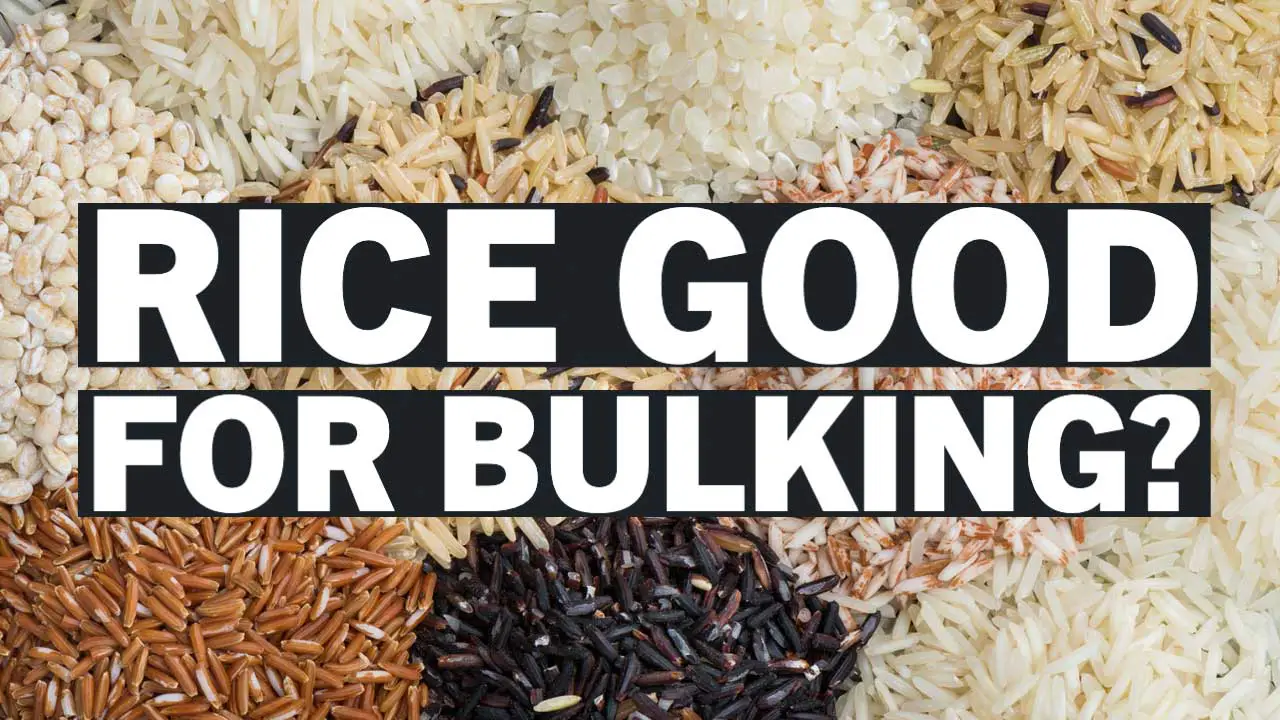 BulkingJuly 26, 2023Is Rice Good for Bulking? Unveiling the Truth
BulkingJuly 26, 2023Is Rice Good for Bulking? Unveiling the Truth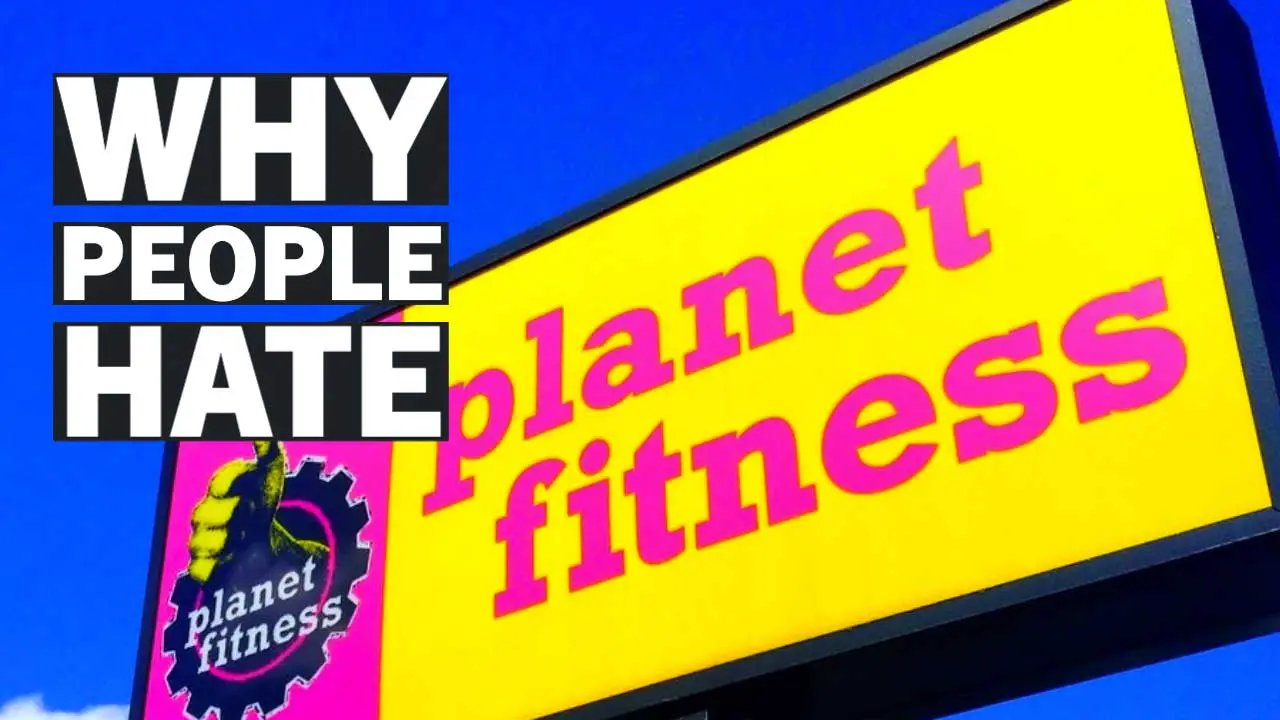 CultureJuly 15, 2023Why Do People Hate Planet Fitness? Read This Before You Join!
CultureJuly 15, 2023Why Do People Hate Planet Fitness? Read This Before You Join!
Affiliates:
This post may contain affiliate links that at no additional cost to you, the site may earn a small commission. We only recommend products we would use ourselves and all opinions expressed on this site are our own.
General Advice:
The information provided in this article is for general informational purposes only. It is not intended as a substitute for professional advice. Always consult with a qualified healthcare professional before starting any new diet, exercise program, or making changes to your health routine.
Accuracy Advice:
While we strive to provide up-to-date and accurate information, the content in this article may not reflect the most current research or medical guidelines. We encourage readers to do further research and consult with professionals for more personalized advice.
Our Recommendations:
The products and services mentioned in any of our articles are recommended based on our independent research and personal experience. We are not sponsored by any company. We aim to suggest products and services we believe are of high quality and could be beneficial to our readers.


